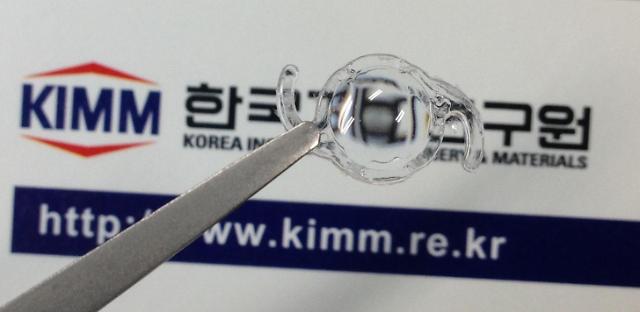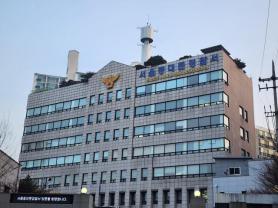
[Courtesy of KIMM]
Although dementia is regarded as an incurable disease, it can be treated to slow down the process and prevent further damage when the disease is found at its early stage. According to the health ministry, South Korea with a population of about 52 million is predicted to have some 1.3 million dementia patients in 2030. The rate of occurrence is 10.33 percent in people aged 65 years old and older.
The Korea Institute of Machinery & Materials (KIMM) said that a joint research team involving researchers from KIMM, Yonsei University, Yonsei University College of Medicine Yongin Severance Hospital, and Gangnam Severance Hospital, succeeded in the development of an intraocular lens implant capable of detecting Alzheimer's disease at its early stages.
The researchers focused on the characteristics of the eye, directly connected to the brain, to detect various biomarkers. An implantable biosensing module was mounted onto a bioresponsive hydrogel. The lens would show moire patterns, which are overlapping patterns of stripes, when it detects a target biomarker by contracting.
Unlike conventional biosensors that require electrochemical or fluorescent labels to detect biomarkers and an external power source, the hydrogen sensor does not require any. "This intraocular lens could reduce social costs by diagnosing various neurological diseases including dementia," KIMM said in a statement on January 12.
Copyright ⓒ Aju Press All rights reserved.




